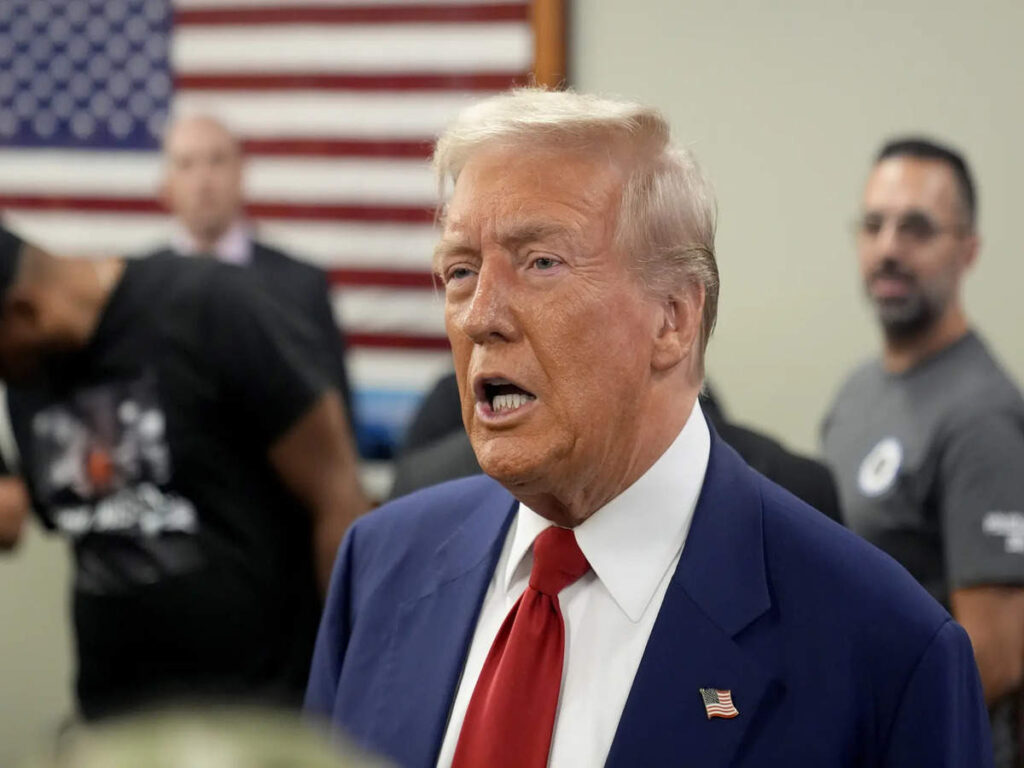
In a significant legal dispute, Florida Attorney General Ashley Moody has intensified her standoff with the U.S. Department of Justice (DOJ), aiming to gain greater access to federal information surrounding an alleged assassination attempt on former President Donald Trump. Moody’s recent lawsuit against the DOJ underscores growing tension between federal and state authorities, as Florida officials seek clarity and collaboration in their independent investigation.
The Florida DOJ Trump Case: Background and Key Players
Florida’s legal move revolves around recent alleged threats to former President Trump, including a specific incident at his West Palm Beach property. Moody has highlighted the need for transparent, independent inquiry into these events, pressing the DOJ to release evidence and grant access to federal findings. This step signals the state’s assertion that federal agencies, particularly the FBI, are not cooperating fully in a case that has drawn significant public and political interest.
Florida’s case is spearheaded by Attorney General Ashley Moody, a prominent figure in state politics and a staunch ally of Trump, who contends that federal agencies should support state-level investigations to build public confidence. Opposing Moody in this scenario are DOJ officials, including FBI Special Agent Jeffrey Veltri, who has faced criticism from Moody over his impartiality. Tensions have escalated, especially as federal and Florida state law enforcement agencies have collided on access to evidence and crime scenes.
Federal vs. State Authority: A Legal Showdown
The crux of the lawsuit centers on what Moody alleges to be a lack of federal cooperation, which could stymie Florida’s investigation efforts. According to Section 351 of Title 18 in the U.S. Code, attempts or conspiracies to harm high-profile political figures like former presidents are classified as federal offenses, usually placing such investigations squarely under DOJ jurisdiction. However, Moody argues that Florida’s investigative efforts would complement, rather than disrupt, the federal probe, aiming to dispel public doubt about potential biases within federal agencies.
Moody’s letter to FBI Director Christopher Wray and U.S. Attorney Markenzy Lapointe referenced an incident where state investigators were denied access to the Trump property and blocked from obtaining critical evidence. Florida Governor Ron DeSantis has also joined Moody in expressing concerns over federal non-cooperation, signaling growing frustration at the state level.
Political Implications and Public Perception
This clash has broad political implications, particularly as the former president maintains a significant base of support in Florida. Moody’s stance resonates with many in Florida, especially among Trump supporters, who view the DOJ’s reluctance to collaborate with suspicion. Additionally, recent whistleblower claims of anti-Trump bias within the FBI have further fueled skepticism, creating a politically charged environment.
For the DOJ, maintaining jurisdiction over the investigation allows federal agencies to control the legal processes tied to high-profile security issues. However, some political analysts note that the DOJ’s perceived withholding of cooperation may appear as an attempt to control the narrative, sparking public concerns about transparency and accountability.
Potential Legal Outcomes of the Florida DOJ Trump Case
While Florida has pushed for greater access and cooperation, the DOJ holds considerable sway in federal matters involving threats to former heads of state. Still, this lawsuit could compel the DOJ to release limited information to the state or negotiate terms to involve Florida’s investigative team. Alternatively, federal authorities could counter by restricting evidence access based on national security grounds, framing the incident as a matter that requires solely federal oversight.
Legal experts observe that Moody’s aggressive approach may signal further state-federal disputes in future politically sensitive cases. The outcome could influence how future investigations involving high-profile figures are handled, especially when overlapping federal and state jurisdictions are involved.
Conclusion: A Path Forward?
With Moody’s lawsuit, the Florida DOJ Trump case has become emblematic of broader debates about federal versus state authority and transparency in politically charged cases. Both Moody and DeSantis argue that an independent Florida investigation could foster greater public trust, a move they claim would increase transparency in the wake of partisan distrust in federal institutions. How this legal battle unfolds could impact not only this case but future state-federal interactions in high-profile investigations.
image source – AP


